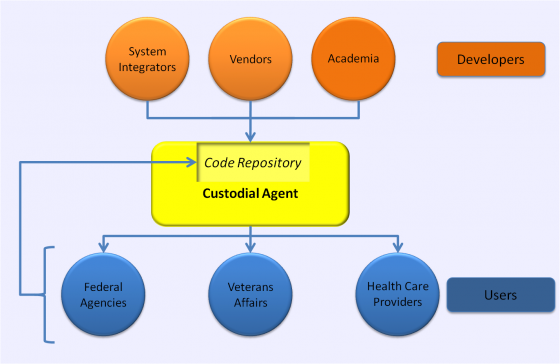
That's because open source is, at heart, a make-or-buy decision. To get the most value from it, you have to become part of the community. You have to make contributions, report bugs, test beta code. You're not just investing money, but time. Employee time.
In the contracting model that dominates the boom town of modern Washington created by the Bush Administration (the Iraq War was almost all done by contract, and the Administration's “privatization” efforts mainly involved contracting) this doesn't compute. If you do switch to open source (and some contractors have) the savings are all the contractors', both now and later.
For government to get the most value from open source, it has to hire its own programmers whose time can be spent capturing that value on behalf of their employer, namely you and me.
This is not necessarily a partisan issue. The Conservative government of the U.K. is pushing open source heavily, to the delight of the industr.
But it's moving ahead slowly, and there is little indication the government has accepted the move's implications. They seem to think it relates to standards and interoperability.
Yes, you want standards and interoperability with open source. But they're not essential. You can go down a one-way road with open source and you can create proprietary software that's based on standards and interoperates.

So rather than hiring a contractor, the government wants to hire a custodial agent. The agent would sit between government on the one side and contractors on the other. Their code repository could be used by vendors, government agencies, and customers. This looks like the real deal.
Is it? Depends on how it is implemented.
The only “problem” is that it would threaten the whole multi-billion dollar Health IT industry, most of which is based on various proprietary models. If this took off, all kinds of medical customers could get their medical software free. Yes, they would need to hire IT staffs, and there would be a variety of companies involved in maintenance, installations, and the like – just as in the rest of the open source industry – but it could destroy the contracting model.
Consider Open Health Tools, founded by the same gentleman who founded the Eclipse Foundation. If the repository is built by a non-profit like this, especially one well out of the orbit of Washington contracting (OHT is based in Asheville) it could have a dramatic impact on total health software costs and health care costs as a whole.
But it would also blow up the industry that exists, not just the industry serving the government but possibly the one serving private business as well. Everyone likes saving money.
On the other hand, you could put this into an existing contractor like General Dynamics and very little will change. The contractor would subtly limit membership to the elect, for “security” reasons. Vendors would capture the savings. Things would go on as before.
So a lot remains unknown here. Will the government open source effort succeed? One thing is for certain.
It won't be televised.











